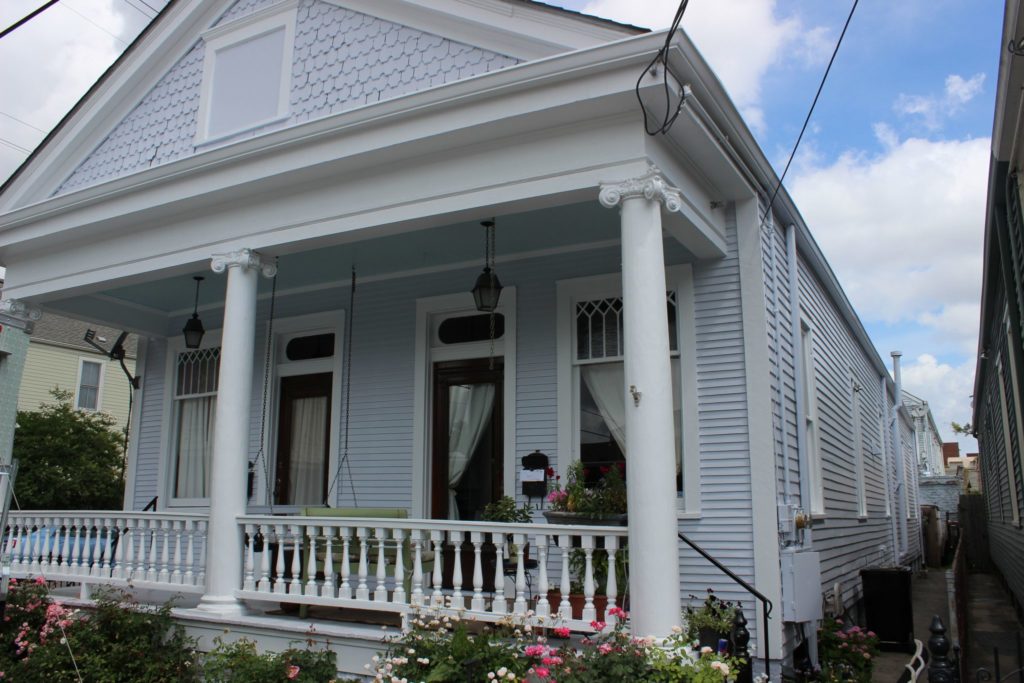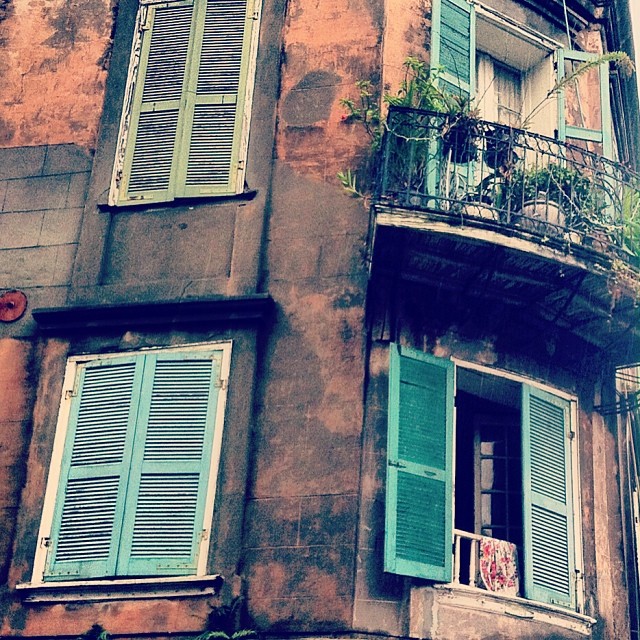
Can I have an Energy Efficient Historic Home?
Enough can’t be said about New Orleans historic architecture. It is luring and fun to purchase one of these icons to the past. But anyone who owns a historic home will tell you that they are not energy efficient. Before we tackle that subject, lets look at the different architectural styles because it will affect the cost of making your older home into modern energy efficient older home.
Diversity and novelty reign supreme in New Orleans, and that’s how it’s always been. For proof, just take a look at the variety in the historic architecture. Below are four of the most commonly used architectural styles in the city.
- Our symmetrical Creole Cottages with their bank of French doors spanning their facades are the oldest standing architectural types in New Orleans.
- Creole Townhouses, the tall elegant homes found throughout the French Quarter, were first built during the colonial era and remain popular today.
- Center Hall Cottages themselves, which first emerged in the South and in the Caribbean, come in a medley of styles from Greek Revival to Victorian.
- Of course, we can’t forget the Shotgun House, perhaps the most predominant architecture in New Orleans, with its one-by-one room placement that allows air to move efficiently from the front to the back through doors, windows, and transoms.
We’re proud of these historic homes, and it’s interesting to note the reasons for the vernacular styles that flourished during New Orleans’ early years. A vernacular architecture is simply an architectural style built primarily to suit the needs of a particular locale with fashion coming in a distant second concern. Let’s take a look at some of the features that these buildings share.

- An abundance of windows and, in some cases, external doors to allow the passage of air.
- Transoms above doors to allow air circulation in an out of the home as well as among rooms.
- Fanlights above entryways to provide interior light and air circulation.
- Externally located chimneys to reduce the heat created indoors.
- Wooden facades and floors due to the abundance of trees and to the prevalent use of barge boards, or wood taken when barges from the Mississippi were taken apart at the ends of their journeys.
- High ceilings to allow hot air to rise.
- Raised crawlspaces to prevent flooding.
It’s interesting to note that the earliest homeowners of New Orleans were just as concerned about energy efficiency as we are today. However, the goals of an energy efficient historic home were different than today idea. Yesteryear, homeowners wanted air flowing to keep them cool in the summer. Now homeowners have access to materials and technology to heat and cool their homes that were not available in the city’s early years.
The early builders were masters of making do with what they had. They kept the homes as cool as possible during the summer using the site’s natural resources, architectural features that made the best use of air flow, and common sense. However, those very features often become problematic when today’s homeowners decide to maximize the use of their energy efficient technologies to save money, conserve energy, and increase the comfort of their historic homes.
Naturally, owners of historic homes want to preserve as much of the architectural integrity of these homes as is possible, and it is possible to increase the efficiency of these homes while maintaining their charm and beauty. During the next few weeks, we’ll be taking a look at ways to make that possible. Thursday, we’ll take a look at the first step you need to take to increase your historic home’s energy efficiency.
Locations:
Main Office: Sunlight Contractors, LLC 2323 Bainbridge St #110, Kenner, LA 70062 (504) 919-9993
New Orleans location: Sunlight Contractors, LLC 650 Poydras St, Suite 1400, Rm 33, New Orleans, LA 70130 (504) 302-0058
